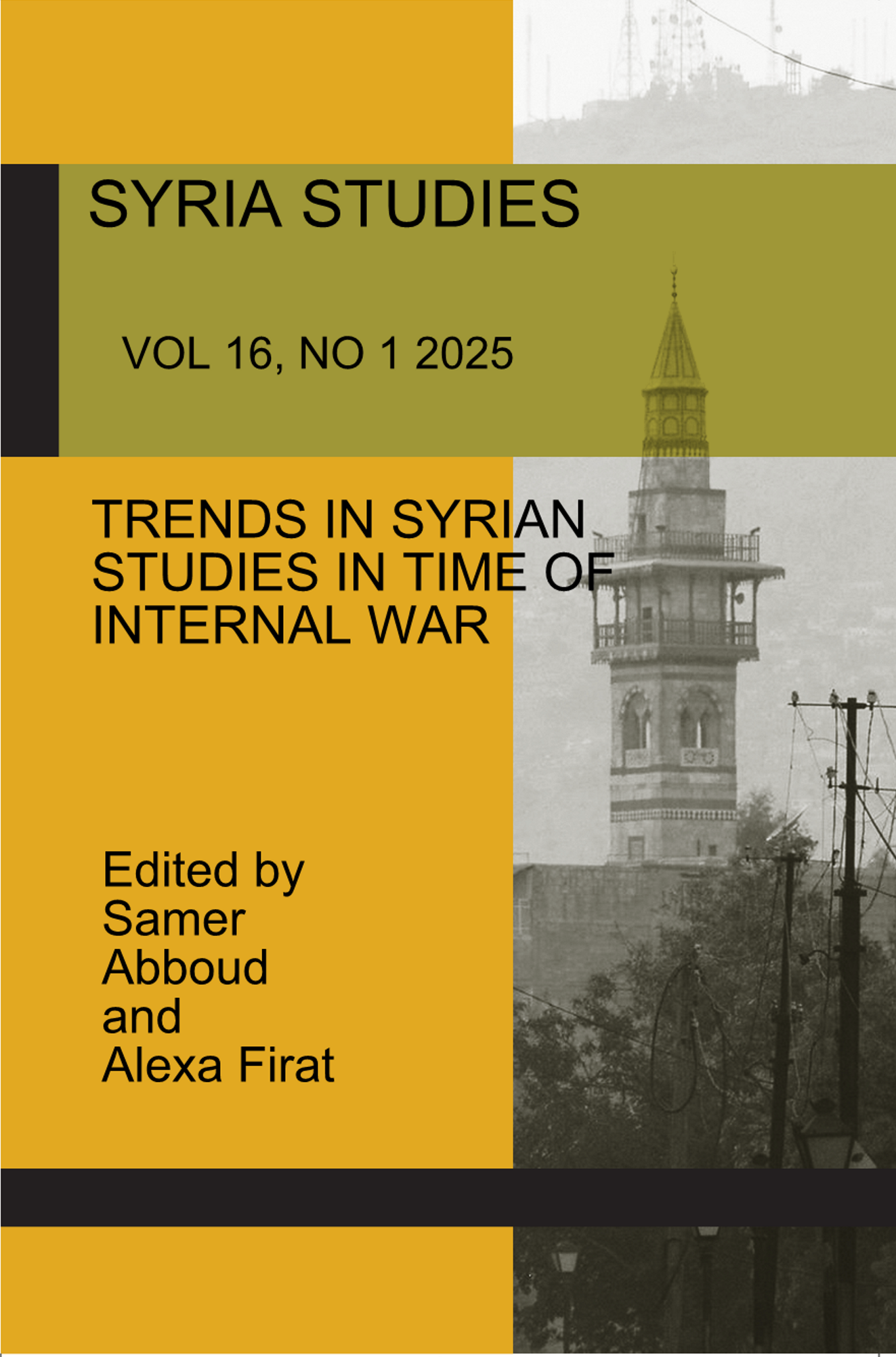Revolution or Familial War: Revolutionary Failures in Khaled Khalifa’s Death is Hard Work
Main Article Content
Abstract
In Death is Hard Work, Khaled Khalifa attempts to understand what it means to have a حرب أهلية, ḥarb ahlīyah, a civil war. Khalifa’s novel partially describes the war as a family or familial war, as the word أهل, ahl, is commonly used in spoken Arabic to refer to immediate family members and relatives. Khalifa elaborates on this notion through the Arabic metaphor and draws a comparison between Abdel Latif Al Salim’s family crisis and dysfunctions, on the one hand, and the ongoing war in Syria, on the other one. As he does that, he observes that in both cases a “revolutionary” mentality underlies the conflictual scene in the country. As such, the strenuous journey Abdel Latif’s children take to bury their father is an attempt to bury the very “revolutionary” mindset he stands to signify; for “revolutionary” masks incompetence, escapism and cowardice. Abdel Latif is a revolutionary figure inasmuch as he wants to effect major changes in Syrian society and win the larger war without fighting and winning the smaller battles in his family and immediate circles. Abdel Latif’s son Bolbol, the protagonist of the novel, represents an attempt to break away from his father’s legacy of sloganeering and big but failed causes. Bolbol’s actions advocate a humanist commitment to family as a potential way forward and away from a defeatist, destructive family, cultural, and political ideological heritage that goes back to the 1950s and 1960s. Outdated revolutions of this type are obsolete, leading to backward looking conflicts that double down on nationalist and nativist ideologies.
Article Details

This work is licensed under a Creative Commons Attribution 4.0 International License.
Authors who publish with this journal agree to the following terms:- Authors retain copyright and grant the journal right of first publication with the work simultaneously licensed under a Creative Commons Attribution License that allows others to share the work with an acknowledgement of the work's authorship and initial publication in this journal.
- Authors are able to enter into separate, additional contractual arrangements for the non-exclusive distribution of the journal's published version of the work (e.g., post it to an institutional repository or publish it in a book), with an acknowledgement of its initial publication in this journal.
- Authors are permitted and encouraged to post their work online (e.g., in institutional repositories or on their website) prior to and during the submission process, as it can lead to productive exchanges, as well as earlier and greater citation of published work (See The Effect of Open Access).
